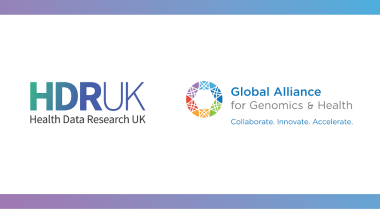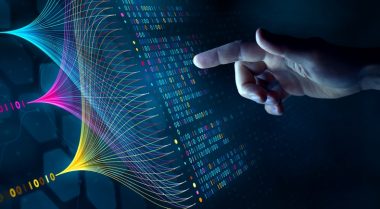Nurturing a national theme
11 June 2019 | Author: Caroline Cake
HDR UK is going through a transition. We’re taking all of the wonderful ingredients we have (smart people, data, computing infrastructure, buildings, great research projects, partners, energy…) and aligning them around national research priorities that have a big collective impact.
Along with Professors Simon Ball and Alastair Denniston, I’m leading on one of these priorities; Digital Health Insights. There are lessons to share about forming a national endeavour, even at this early stage:
1st lesson – find the right words
We know what we want to happen, but it can be hard to get to a shared language that describes it. Digital Health Insights is about using the insights from health data to inform and improve personal, clinical and health system decisions. This means using the data that’s being generated every day in hospitals, clinics and in wearables to make decisions that affect our healthcare differently. Terms such as Learning Health Systems (LHS), Digital Transformation, Continuous Improvement are all part of ‘Digital Health Insights’ but don’t quite describe and fully capture the potential impact. Through this work, we will need to keep challenging ourselves to use terms and language so that everyone understands what they mean.
2nd lesson – ask good questions
Using insights from health data to inform care decisions is a broad-reaching scope, encompassing science, clinical, engineering and many other disciplines. If we scope the work too broadly, we risk diluting effort and achieving nothing. Therefore we are starting with four initial research questions that are focused on what it will take to embed data insights into the healthcare decision-making:
- How can the data generated from new data infrastructure contribute to a LHS at scale? In particular, data generated through Digital Innovation Hubs and Electronic Health Records?
- Where national clinical guidance and priorities have been set, how can data accelerate adoption?
- What assurance, validation, and governance roles are required to embed AI/Machine Learning innovations into Learning Health Systems (LHS) and who will do these?
- How do we evaluate impact of using data within a LHS?
We need to understand what is already going on in these areas, and we also need to work with partners to accelerate the development of the community of health data scientists working in learning health systems.
3rd lesson – connect and catalyse
Digital Health Insights intersects with different established areas of activity in the NHS, academia, industry, charities. By asking good and thoughtful questions, we’re discovering and drawing together the people doing interesting things in this space. Many organisations are already achieving impressive things using insights from health data, for example at Moorfields, Manchester and University Hospitals Birmingham’s recently announced partnership with Babylon. Our national theme can learn from these, and work out how to accelerate the benefits for patients and the public.
We know that we’ll need to iterate our language, and our research questions and welcome others joining us to refine them and work together on this exciting national priority.



